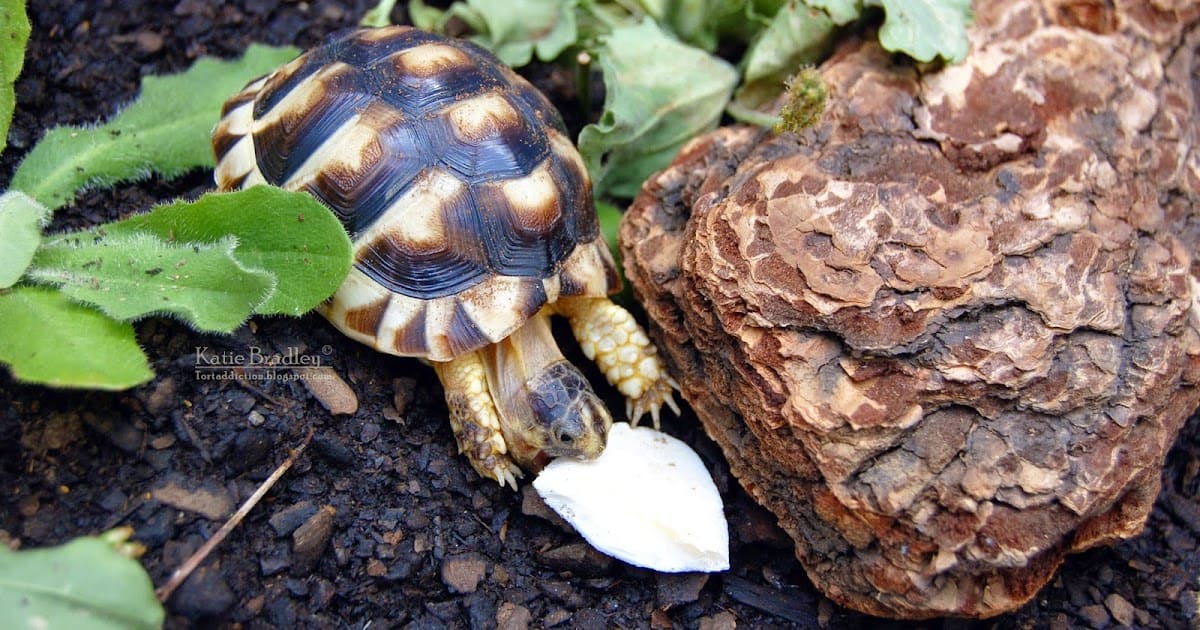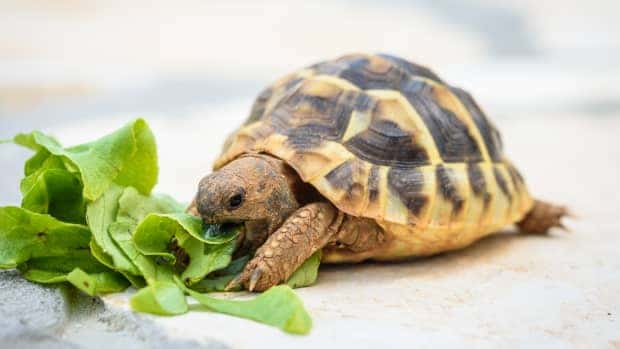Homemade tortoise food recipes typically include a mix of leafy greens, vegetables like squash and carrots, fruits such as strawberries and melons, and calcium supplements.
Easy and Healthy Homemade Tortoise Food Recipes for a Happy Pet
Homemade tortoise food offers a wide range of benefits for your pet. Firstly, it allows you to have complete control over the ingredients, ensuring that your tortoise is receiving a balanced and nutritious diet. Additionally, homemade tortoise food can be tailored to meet the specific dietary needs of your individual tortoise, taking into account factors such as age, species, and health conditions.
By making your own tortoise food, you can also save money in the long run, as commercial tortoise food can be quite expensive. Furthermore, preparing homemade tortoise food can be a fun and rewarding experience for pet owners, allowing them to take an active role in their tortoise’s care and well-being.
Another benefit of homemade tortoise food is that it can help to prevent the development of health issues in your pet. Many commercial tortoise foods contain fillers, preservatives, and artificial ingredients that may not be ideal for your tortoise’s health. By making your own tortoise food, you can ensure that it is free from these potentially harmful additives. Additionally, homemade tortoise food can be made with fresh, high-quality ingredients, providing your pet with the best possible nutrition. Overall, homemade tortoise food offers numerous benefits for both pet owners and their beloved reptiles.
Nutritional requirements for tortoises
Tortoises have specific nutritional requirements that must be met in order for them to thrive. A balanced diet for a tortoise should consist of a variety of leafy greens, vegetables, fruits, and occasional protein sources. Leafy greens such as dandelion greens, collard greens, and mustard greens are excellent sources of fiber, vitamins, and minerals for tortoises.
Vegetables like carrots, squash, and bell peppers can provide additional nutrients and variety to their diet. Fruits such as strawberries, apples, and melons can be offered as occasional treats, but should not make up a large portion of their diet. Additionally, tortoises may benefit from occasional protein sources such as insects or cooked lean meats.
Calcium and vitamin D3 are also essential for the health of tortoises. These nutrients are important for bone health and overall well-being. Tortoises can obtain calcium from sources such as cuttlebone, calcium powder, and dark leafy greens. Vitamin D3 is synthesized through exposure to UVB light, so it is important for tortoises to have access to natural sunlight or UVB lighting in their enclosure. By understanding the specific nutritional requirements of tortoises, pet owners can ensure that their homemade tortoise food meets these needs.
Basic ingredients for homemade tortoise food
When preparing homemade tortoise food, it is important to include a variety of nutritious ingredients to ensure that your pet receives a balanced diet. Some basic ingredients to consider include leafy greens such as dandelion greens, collard greens, and kale.
These greens are rich in fiber, vitamins, and minerals that are essential for the health of tortoises. Additionally, vegetables like carrots, squash, and bell peppers can provide additional nutrients and variety to their diet. Fruits such as strawberries, apples, and melons can be offered as occasional treats to add some sweetness to their diet.
Protein sources are also important to include in homemade tortoise food. Insects such as crickets, mealworms, and dubia roaches can be offered as occasional treats to provide essential protein for your pet. Additionally, cooked lean meats such as chicken or turkey can be included in their diet in small amounts.
Calcium sources such as cuttlebone or calcium powder should also be added to homemade tortoise food to ensure that your pet receives the necessary nutrients for bone health. By incorporating these basic ingredients into homemade tortoise food, pet owners can provide their reptiles with a nutritious and well-rounded diet.
Simple homemade tortoise food recipes
There are many simple and easy-to-make recipes for homemade tortoise food that pet owners can prepare for their beloved reptiles. One basic recipe involves combining a variety of leafy greens such as dandelion greens, collard greens, and kale with vegetables like carrots, squash, and bell peppers. These ingredients can be finely chopped or pureed in a food processor to create a nutritious and easily digestible meal for your tortoise.
Additionally, adding a small amount of fruit such as strawberries or apples can provide some sweetness and additional nutrients to their diet.
Recipe 1: Tortoise Salad
This versatile salad can be adapted for various tortoise species by adjusting the ingredients.
- Base: Leafy greens (dandelion, kale, collard greens, romaine lettuce, etc.)
- Variety: Add a mix of other vegetables (grated carrot, squash, bell peppers, zucchini) and edible flowers (hibiscus, nasturtium, rose petals)
- Protein (optional): For tropical tortoises, add a small amount of cooked chicken or hard-boiled egg (1-2 times a week)
- Calcium: Sprinkle with calcium powder (especially important for growing tortoises)
Instructions:
- Thoroughly wash all ingredients.
- Chop greens and vegetables into bite-sized pieces.
- Mix all ingredients in a large bowl.
- Serve fresh.
Recipe 2: Tortoise “Smoothie”
This is a great way to hydrate your tortoise and provide essential nutrients.
- Base: Water or unsweetened hibiscus tea
- Leafy greens: Kale, collard greens, spinach, etc.
- Fruits (optional): Berries, melon, papaya (for tropical tortoises)
- Supplements: Add a calcium/vitamin D3 powder
Instructions:
- Blend all ingredients in a blender until smooth.
- Pour the mixture into a shallow dish.
- Offer to your tortoise as a supplement to their regular diet.
Recipe 3: Tortoise “Jelly”
This fun and nutritious recipe is a hit with many tortoises.
- Base: Plain gelatin (unflavored) or agar-agar (vegan option)
- Leafy greens: Kale, collard greens, spinach, etc.
- Fruits (optional): Berries, melon, papaya (for tropical tortoises)
- Supplements: Add a calcium/vitamin D3 powder
Instructions:
- Prepare the gelatin or agar-agar according to package instructions.
- Blend leafy greens and fruits (if using) in a blender.
- Mix the blended greens/fruits with the gelatin/agar-agar.
- Pour the mixture into a mold and refrigerate until set.
- Cut into small cubes and serve as a treat.
Another simple homemade tortoise food recipe involves creating a protein-rich meal for your pet. This recipe may include offering insects such as crickets or mealworms as a treat, along with some cooked lean meats like chicken or turkey.
These protein sources can be combined with calcium powder and finely chopped leafy greens to create a well-balanced meal for your tortoise. By following these simple recipes, pet owners can provide their tortoises with a nutritious and varied diet that meets their specific dietary needs.
Recipe 1: Insect Salad
- Base: Mixed greens (collard greens, dandelion greens, romaine lettuce)
- Protein: Live or canned insects (crickets, mealworms, waxworms)
- Calcium: Dust insects with calcium powder before feeding
- Optional: Grated carrots, squash, or other vegetables for added variety
Instructions:
- Thoroughly wash and chop the greens.
- If using live insects, gut-load them with nutritious food for 24 hours before feeding.
- Dust insects with calcium powder.
- Combine greens, insects, and any additional vegetables in a bowl.
- Serve to your tortoise immediately.
Recipe 2: Worm and Vegetable Medley
- Base: Chopped vegetables (sweet potato, zucchini, bell pepper, grated carrot)
- Protein: Earthworms or red wigglers
- Calcium: Dust worms with calcium powder before feeding
- Optional: Add a small amount of chopped fruit (papaya, mango, berries) for tropical tortoises
Instructions:
- Thoroughly wash and chop the vegetables.
- Rinse the worms to remove any dirt.
- Dust worms with calcium powder.
- Combine vegetables, worms, and any additional fruit in a bowl.
- Serve to your tortoise immediately.
Recipe 3: Tortoise “Meatloaf”
- Base: Cooked ground chicken or turkey (low-fat)
- Binder: Cooked brown rice or lentils
- Vegetables: Grated carrots, zucchini, peas
- Calcium: Sprinkle with calcium powder
Instructions:
- Mix all ingredients in a bowl.
- Form the mixture into small patties.
- Bake at 350°F (175°C) for 15-20 minutes or until cooked through.
- Let cool completely before serving to your tortoise in small portions.
Tips for preparing and storing homemade tortoise food
When preparing homemade tortoise food, there are several tips that pet owners should keep in mind to ensure that their reptiles receive a safe and nutritious diet. Firstly, it is important to thoroughly wash all fruits and vegetables before including them in homemade tortoise food to remove any pesticides or contaminants.
Additionally, all ingredients should be finely chopped or pureed to make them easily digestible for your pet. It is also important to avoid using any ingredients that are toxic or harmful to tortoises, such as avocado or rhubarb.
Storing homemade tortoise food properly is also essential to maintain its freshness and nutritional value. Leftover food should be stored in an airtight container in the refrigerator to prevent spoilage. It is important to discard any uneaten food after 24 hours to avoid the growth of harmful bacteria or mold.
Additionally, frozen homemade tortoise food can be stored in the freezer for up to three months to extend its shelf life. By following these tips for preparing and storing homemade tortoise food, pet owners can ensure that their reptiles receive a safe and healthy diet.
Consulting a veterinarian for homemade tortoise food recommendations
While homemade tortoise food can offer numerous benefits for pet owners and their reptiles, it is important to consult with a veterinarian before making any significant changes to your pet’s diet. A veterinarian who specializes in reptile care can provide valuable guidance on the specific nutritional requirements of your individual tortoise species. They can also offer recommendations on the best ingredients and proportions to include in homemade tortoise food based on factors such as age, health conditions, and dietary preferences.
Additionally, a veterinarian can help pet owners identify any potential risks or deficiencies in their homemade tortoise food recipes and offer solutions to address these issues. They may also recommend specific supplements or dietary modifications to ensure that your pet receives all the necessary nutrients for optimal health. By consulting with a veterinarian for homemade tortoise food recommendations, pet owners can ensure that they are providing their reptiles with a safe and balanced diet that meets their specific needs.
Conclusion
In conclusion, homemade tortoise food offers numerous benefits for pet owners and their beloved reptiles. By understanding the nutritional requirements of tortoises and incorporating a variety of nutritious ingredients into homemade recipes, pet owners can provide their pets with a well-balanced diet that meets their specific needs.
Whether preparing simple or advanced recipes, it is important to follow proper preparation and storage techniques to ensure the safety and freshness of homemade tortoise food. Additionally, consulting with a veterinarian can provide valuable guidance on the best ingredients and proportions to include in homemade tortoise food based on the individual needs of your pet.
Overall, homemade tortoise food offers a rewarding opportunity for pet owners to take an active role in their pet’s care and well-being while providing them with the best possible nutrition.
Originally posted 2024-07-02 03:00:06.



